Bessemer's 2021 Fellowship Class
Meet Bessemer’s second Fellowship Class and discover how they believe Gen Z will change the next decade.
The Bessemer Fellows Program aims to connect university students to the world’s most innovative and fastest-growing technology companies. This year we appointed 25 students from over one thousand applications. Our summer program aims to help the Fellows acquire invaluable work experience and offer access to mentors, industry professionals, and the broader Bessemer community.
This year our Fellows from all over the United States and Canada participated in professional development workshops that touched on strong leadership, building company culture, and turning your passion into the next big start-up. The Fellows connected with top experts and executives who are paving the way in their unique industries, including Russ Glass, CEO of Ginger, Ott Kaukver, former CTO of Twilio, Jonathan Nolen, Senior Vice President of Product and Engineering at LaunchDarkly, Jeff Epstein, Operating Partner at Bessemer, and many others.
How will Gen Z change the world?
These Fellows have demonstrated a deep curiosity and passion for technology and innovation during the Fellowship sessions and their internships at a Bessemer-backed company. In this spirit, we asked them to share their thoughts on how they believe Generation Z will change society, business, and/or technology in the next decade.
We hope this year’s Fellows help inspire other students and aspiring entrepreneurs, technologists, and investors to consider applying for next year’s Bessemer Fellowship.
Meet our Bessemer Fellows 2021
Alex Ker - Pomona College, Computer Science Major, Philosophy and Math Minors

“Technologies and the businesses they power will be more equitable, climate-conscious, and health-focused than ever before, while maintaining high performance at low costs, bringing us an environment to live in like nothing today.”
Anika Bagga - UC Berkeley, Computer Science

“In the next decade, I believe Gen Z has the power to prioritize adopting sustainable practices, play an active role in addressing social and economic inequalities, and be the most entrepreneurial generation of all time."
Christian Gonzalez - University of Central Florida, Computer Science

“Existing boundaries between work and life will become more obscured over the next ten years as Gen Z adopts greater integration of their professional and personal lives. The corresponding relevance of established labor models such as the 40-hour workweek is likely to diminish as a result.”
Frederick “Hudson” Alexander - Morehouse College, Business Administration - Marketing

“Gen Z will continue to rotate society’s moral compass and reshape its ideals, leading to new normals — this monumental change will result in more diverse people creating more diverse opportunities in every aspect of our lives and especially at the cross-section business and technology.”
Gabrielle Inchoco - Wellesley College, Computer Science and Mathematics

“I'm interested in how Gen Z will transform sectors of education technology and content management tools. I follow a lot of content creators in search of mental clarity, improving focus, attention sensitivity and I find content management systems like Notion, Roam, or Obsidian to be at the heart of how many young people store and produce systems of knowledge-making and representation. What kind of system do we have for storing ideas? How can these be improved and made more efficient? I think it's very exciting to pay attention to what we pay attention to.”
Gaurav Mehta - University of California, Mathematics-Computer Science

“With Gen-Z entering the workforce in the next couple of years, I think we will see lots of changes in the context of jobs and the future of work. Already we have seen the rise of digital nomads, creators and influencers, student/young entrepreneurs, and work-from-home. With the pandemic we have had a couple more changes with the validation of the remote work concept and many students/Gen-Z opting to take time away from school (or even dropping out) in order to pursue startups and other endeavors. All of these mixed together, I believe Gen-Z will change the way we think of "work" whether that's changing the way we work in an office or getting rid of the traditional 9-5.”
Hunter Hancock - Georgia Institute of Technology, Computer Science
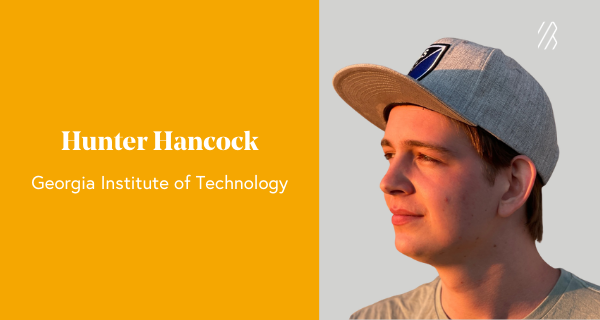
“Education! I believe that the shortcomings of virtual school have accelerated existing trends toward alternative educational paths. Gen Z will pave the way for future generations to learn and develop their careers without taking the traditional college path, embracing bootcamps, apprenticeships, and online learning platforms instead. This exploration will become critical as many of today's career options become automated. The students of tomorrow must be prepared for a rapidly transforming world - our college system is failing to adjust at this pace. Gen Z will pioneer these alternatives.”
Ishani J Patel - Chapman University, Economics and Data Analytics

“I am part of a generation that is environmentally aware and focused on reshaping the digital world. Gen Z has an innate sense of idealism that will help drive innovation. As a generation, we are also more open-minded advocating for more climate-driven initiatives, lgbtqa+ rights, and women empowerment that will create a long-lasting positive ripple effect.”
Jathan Caldwell - Georgia Tech, Industrial Engineering

“‘All-you-can-eat’ consumption structures in social/media platforms have successfully empowered a broader volume of voices, but in many ways perpetuated the same, non-inclusive mental models. I believe Gen Z will transform this over the next decade by rallying for more decentralized communities and ownership economies."
Justin Nguyen - University of California, Computer Science
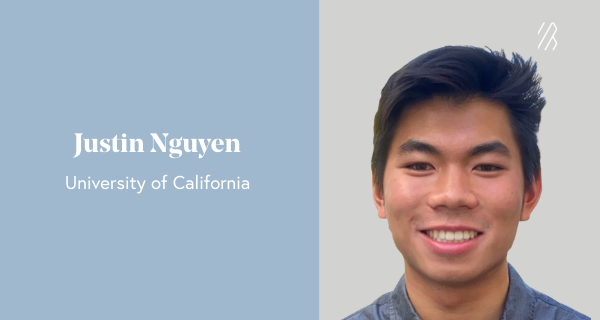
“I believe that Gen Z will change society and technology in the next decade by making telehealth more accessible in remote areas through the use of drones and satellite internet.”
Karina Bao - Brown University, Computer Science
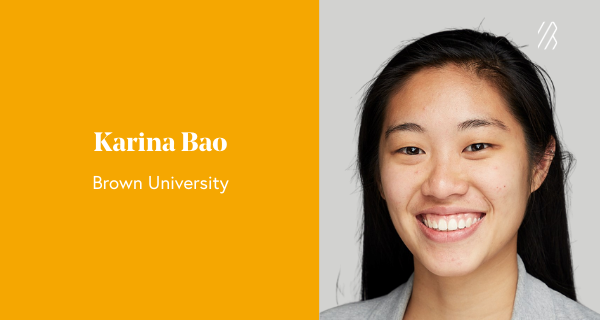
“Many Gen Z-ers will embrace a remote-first workplace. This will give businesses more flexibility in terms of hiring, but companies will continue to face challenges building a remote office company culture. Gen Z-ers may feel less attached to one place or one company and be willing to take more career or personal risks. Gen Z-ers will continue to build internet communities and companies. Most will embrace trendy technologies that make it into our daily lives with little question. American Gen Z-ers tend to have a strong sense of justice, and we will continue seeing companies emphasizing sustainability and inclusion.”
Kassen Qian - Duke University, Computer Science and Cultural Anthropology

“Gen Z sees more value in products that are purely digital than any other generation. Personally, I’m excited to see how we drive forward use cases for NFTs in art, gaming, and the expansion of the metaverse.”
Kevin Lee - Stanford University, Biology
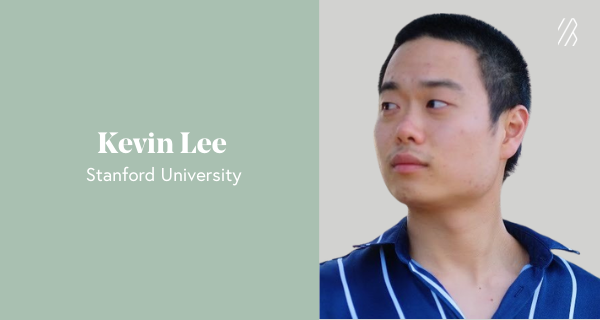
“Gen Z embodies authenticity and ownership. Gone are the days of perfectly polished Instagram accounts, replaced by the quirky eccentricity of alt TikTok accounts. Today’s young influencers are no longer satisfied by the brand deals of Creator 1.0 – they’re investing in startups, getting on cap tables, and building businesses themselves.”
Laurel Lee - University of Pennsylvania, Computer Science
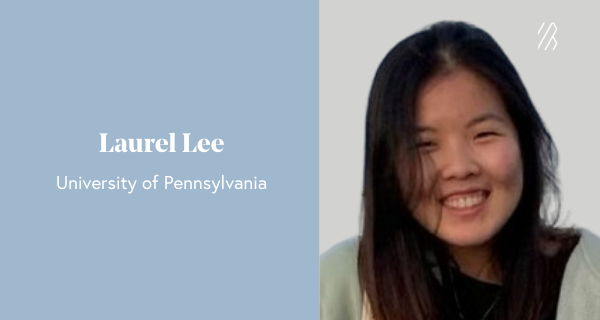
“I believe Gen Z will shed more light on and focusing on tackling the repercussions of increasing technology usage, especially in terms of our mental and physical health. But first, I believe and hope Gen Z will allow voices in tech to become more representative of the society we live in through sustained efforts in improving diversity and inclusion during a time with so much potential for innovation.”
Lizzie Kim - University of Waterloo, Computer Science

“Gen Z is a generation that has been embracing change, individuality, and creativity. They have shaped another culture where they do not want to be a part of one economic wheel, but rather, create a unique workforce and lifestyle for themselves. So, I believe that technology will change to accommodate each individual creator instead of a whole corporation. Technology products will be more accessible so that quite literally anyone will be able to use it and be accepted as part of the community; they will be able to express themselves however they desire and be rewarded for it.”
Nancy Zhao - University of Toronto, Computer Science and Linguistics

“Gen Z will build for the future with combating inequalities and climate change at the forefront of their minds. Having grown up in the digital age, Gen Z will be empowered with technology to transform systems to be more inclusive, diverse, and innovative.”
Olivia Graham - Harvard University, Computer Science and Mind, Brain and Behavior

“My hope, at least, is that we will see more technology in the service of society - startups that target disparities in education, companies which recognize that their impact is more than the revenue that they generate, and more.”
Ryan Kim - Brown University, Computer Science & Urban Studies

“Over the past few years, many companies, notably those in technology sectors, have adopted social impact and sustainability initiatives. In the future, I believe Gen Z will excite a new level of corporate social responsibility among companies across all industries.”
Samantha Snedeker - Duke University, Computer Science, Economics, Creative Writing

“In the next decade, I am excited to see Gen Z play a large role in breaking down old-fashioned and inequitable hierarchical structures. We have grown up idolizing college dropouts turned CEOs and with access to just about any piece of information we wish to find online. As a result, the process of entering the workforce and progressing through one’s career is likely to look entirely different in an incredible way.”
Sanjana Akula - University of Pennsylvania, Wharton, Computational Biology & Business Analytics (Life Sciences & Management Dual Degree Program)

“Gen Z is demanding more transparency from institutions and, by extension, greater control over how institutions represent and reflect our interests. By 2031, the public will reclaim some of the political power currently wielded by corporations, as corporate financial interests become more tightly aligned with the values of their customers.”
Sarah E. Johnson - New York Institute of Technology, Electrical and Computer Engineering Technology
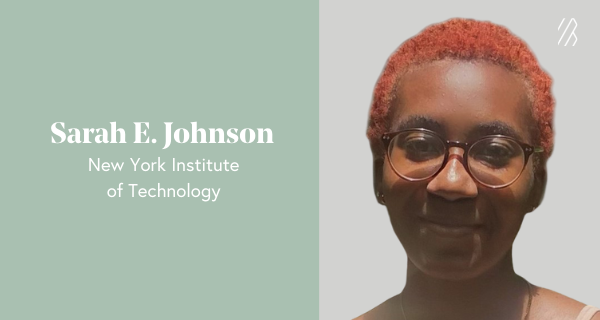
“Gen Z can access an unlimited amount of technology, confidence, and the virtual present that they are able to reach a large number of consumers/customers at once. In the next decade, I can see the rise of cutting-edge diverse technology and businesses only because of gen z'ers, entering the industry embracing their personal passions and pushing the limits of what can and can not be developed. They (we) are an unstoppable force when it comes to impacting the market and the future of society.”
Sathvika Shakhamuri - University of Washington, Informatics
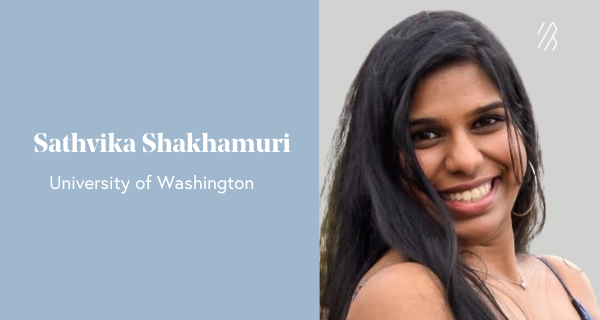
“As a part of Gen Z, we are born into such an unprecedented era where vast amounts of information are readily available for us to learn and adapt. I believe Gen Z will utilize the knowledge we gain to make informed decisions to contribute towards technological and societal changes.”
Simran Singh - University of Toronto, Computer Science and Statistics
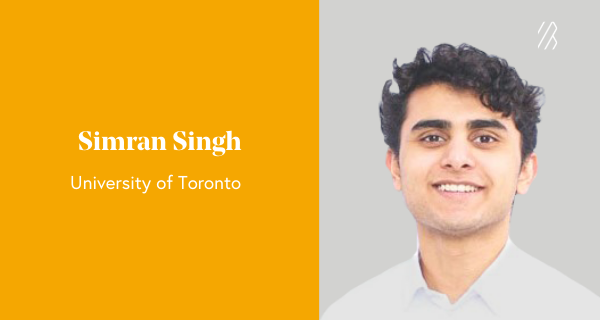
“In the next decade, I believe Gen Z will be the primary driver in permanently changing our economic and social interactions; enabling society to be curious enough to try things, fearless enough to fail and resilient enough to succeed. Whether that be through building equitable platforms to allow anyone to create their own source(s) of income or even using existing platforms to democratize information and helping others to participate in markets.”
Svitlana Midianko - Minerva Schools at KGI, Applied Computer Science and Artificial Intelligence.

“I hope that Gen Z will bring their open-mindedness and passion in the next decade to form truly diverse teams in fast-growing companies. With this, the world will see increased synergy, reinforcing the creation of more innovative, universal, and inclusive products everywhere -- starting from internal AI products of Silicon Valley's tech firms and ending with the internet of drone firms in rural areas of Africa.”
Viktoriia Shevchenko - University of Rochester, Data Science major & Math and Linguistics minor

“Gen Z is the most diverse and inclusive generation the US has ever seen, which is an excellent characteristic of a generation that is transitioning to the workforce. Over the next decade, aspects of our identities (such as sex, race, ethnicity, sexual orientation, etc) will no longer be legal or social barriers in our careers because of the ongoing social reform that Gen Z is leading.”
